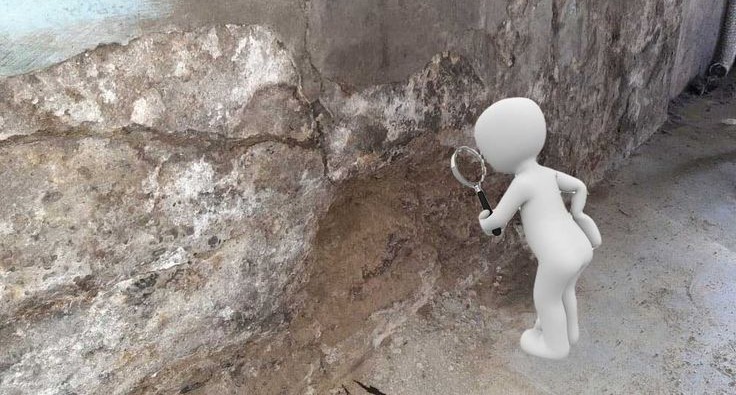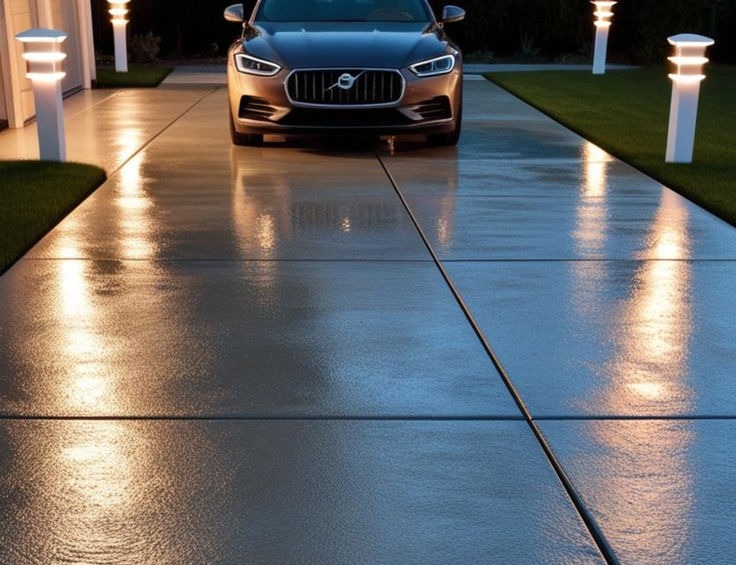If you’re a Texas homeowner considering a new driveway or wondering about your current one, you’re likely asking: what is the lifespan of concrete driveways in Texas? The short answer: with proper installation and maintenance, a concrete driveway in Texas can last anywhere from 25 to 40 years, and in some cases, even longer. But that’s not the whole story. Texas’s unique climate, soil type, and regional construction practices all play a role in determining the actual lifespan.
In this post, we’ll break down everything you need to know about concrete driveway durability in Texas, including factors that affect longevity, maintenance tips, costs, and signs of wear.
Why Concrete Is the Preferred Driveway Material in Texas
Before diving into lifespan specifics, it’s important to understand why concrete is such a popular choice for Texas driveways.
Concrete offers:
- High durability in hot climates
- Low maintenance compared to asphalt
- Better heat resistance (important in sunny Texas)
- Improved aesthetics for suburban and upscale neighborhoods
In areas like Austin, Lakeway, Round Rock, Georgetown and Cedar Park, concrete is widely used because it can withstand Texas’s harsh temperature swings, occasional heavy rains, and clay-heavy soils.

Read More: Concrete vs. Asphalt Driveways: What’s Better for Austin Homes?
Average Lifespan of Concrete Driveways Last in Texas?
If you’re planning a new driveway or assessing the condition of your current one, it’s crucial to understand what affects its longevity. On average, concrete driveways installation in Texas last between 25 and 40 years, but this can vary significantly depending on a variety of factors. In fact, under optimal conditions, a well-constructed concrete driveway in Texas can last up to 50 years or more, while poor planning and neglect can cause failure in as little as 15 to 20 years.
Let’s take a deeper look at the key factors that determine the lifespan of your concrete driveway in the Lone Star State:
1. Quality of Installation
This is perhaps the most critical factor. A concrete driveway is only as strong as the way it’s installed. Skilled contractors will take the time to:
- Properly grade the site and compact the base to prevent sinking or shifting over time.
- Install rebar or steel mesh reinforcement to increase tensile strength.
- Cut control joints at the right intervals to allow for natural expansion and contraction.
- Ensure proper curing, which typically involves keeping the surface moist and shaded for 7 days or more.
A driveway installed by professionals with attention to detail can last a decade longer than one poured quickly or incorrectly.
2. Concrete Mix Design (Cement, Water, and Aggregates)
The ratio of materials in your concrete mix greatly affects its durability. A high-quality driveway mix in Texas typically uses:
- A low water-to-cement ratio (for strength and density),
- Clean, well-graded aggregates (gravel and sand),
- And possibly additives or admixtures, such as air-entraining agents or fiber reinforcement, to enhance flexibility and reduce cracking.
Concrete that’s too “wet” (excess water) may be easier to pour, but it results in a weaker finished product more prone to cracking and early deterioration.
3. Soil Preparation and Foundation Support
Texas is home to various soil types, including expansive clay soils that are common in Central and East Texas. These soils swell during wet periods and shrink during droughts, creating movement beneath the driveway slab.
Without proper site preparation, which often includes soil stabilization with lime or cement or the addition of a crushed stone base, this soil movement can cause the driveway to crack, tilt, or sink prematurely. Areas with sandy or well-drained soils, like West Texas, are naturally more favorable for concrete longevity.
4. Exposure to Texas Climate
Texas weather is diverse and extreme, with long hot summers, unexpected downpours, and occasional freezing temperatures in northern regions. These climatic conditions affect concrete in multiple ways:
- Heat and sun exposure can cause thermal expansion, leading to surface cracks.
- Heavy rainfall can erode unsealed concrete and affect the sub-base if not properly drained.
- Freeze-thaw cycles (especially in North Texas and the Panhandle) can lead to internal cracking if water penetrates the surface and freezes overnight.
Driveways that are sealed properly and sloped for drainage will resist the effects of weather much better over time.
5. Maintenance and Care Over Time
Like anything else, routine care extends lifespan. A well-maintained concrete driveway will always outlast one that’s neglected. Homeowners can preserve their investment by:
- Sealing the driveway every 3 to 5 years to prevent water and UV damage.
- Promptly filling small cracks before they widen.
- Avoid using de-icing salts or harsh chemicals, especially in winter.
- Not overloading the driveway with heavy vehicles that exceed its weight rating.
Even just keeping the surface free of standing water and debris can prevent long-term damage.
High-Performance : Up to 50 Years of Use
In Texas regions with dry climates, good drainage, and stable soil, driveways can last upwards of 45 to 50 years, particularly if:
- Reinforced with steel mesh or rebar,
- Poured at a minimum thickness of 4–6 inches,
- And maintained regularly with sealant and minor repairs.
This is especially true in suburban or rural areas where driveways aren’t subjected to heavy daily traffic.
Low-End Lifespan: 15–20 Years in Poor Conditions
Conversely, driveways in areas with:
- Improper base preparation,
- Poor-quality mix or rushed installation,
- Or zero maintenance over time,
…may start showing major issues in under 20 years. Common problems include:
- Surface spalling (flaking or peeling),
- Large structural cracks,
- And settling or tilting caused by sub-base failure.
So, how long do concrete driveways last in Texas? It really depends on how much effort and foresight go into the installation and how well the driveway is maintained. For most homeowners who hire a professional contractor, use the right materials, and stay on top of maintenance, 30–40 years is a realistic, achievable target. Push it even further with best practices, and you could enjoy your driveway for half a century.
Factors That Affect Concrete Driveway Longevity
1. Texas Weather Conditions
Texas is known for its extreme heat, especially during summer. High temperatures can cause concrete to expand, and sudden cooling (e.g., from rain) can lead to contraction, resulting in cracks over time.
Also, North Texas and the Hill Country experience occasional freezes in winter. Freeze-thaw cycles are harsh on porous concrete, especially if not properly sealed.
2. Soil Type and Foundation
Many areas of Texas, particularly Central and East Texas, are notorious for expansive clay soils. If the soil under the driveway is not stabilized before pouring concrete, shifting and sinking can drastically reduce the driveway’s lifespan.
3. Installation Quality
A driveway is only as good as its base. For Texas homes, a driveway should have:
- Compacted gravel base
- Proper reinforcement (rebar or wire mesh)
- Control joints to manage cracking
- Curing time of at least 7 days before heavy use
Subpar installation shortcuts can shave off 10 to 15 years from your driveway’s expected life.
Tips to Extend the Lifespan of Your Concrete Driveway in Texas

1. Seal It Every 3–5 Years
Concrete is porous and absorbs water. In Texas, where storms can quickly follow dry spells, water penetration followed by heat can cause premature wear. Applying a high-quality concrete sealer helps prevent cracks, stains, and erosion.
2. Address Small Cracks Immediately
Hairline cracks are common and often harmless, but if ignored, they can widen over time. Use polyurethane crack fillers or consult a local concrete professional for patching.
3. Keep Heavy Loads Off
Concrete is strong but not indestructible. Parking RVs, boats, or commercial trucks on residential driveways may reduce lifespan due to added stress.
4. Avoid Harsh Chemicals
De-icers or strong detergents can break down surface integrity. Stick with mild soap and water for routine cleaning.
Common Signs Your Concrete Driveway Is Failing

- Deep cracks or widespread spidering
- Large potholes or missing chunks
- Water pooling (indicates poor drainage)
- Discoloration or powdery residue (efflorescence)
- Surface scaling or flaking
If your driveway is over 25 years old and you’re noticing multiple signs, it may be time to consider replacement or resurfacing.
Cost to Replace or Resurface a Concrete Driveway in Texas
Replacing a concrete driveway in Texas can be a significant investment, with the final cost influenced by factors such as your location, the ease of access for contractors, and the type of finish you choose — whether it’s a basic surface, decorative stamping, or custom staining. For a standard-sized driveway, this often translates to a notable expense. However, if the base is still in good condition and only the surface is worn or cracked, resurfacing is a more budget-friendly alternative. It’s especially suitable for driveways with cosmetic damage, offering a refreshed look at a much lower cost compared to a full replacement.
Concrete vs. Asphalt: Which Lasts Longer in Texas?
While asphalt is cheaper upfront and faster to install, concrete generally lasts twice as long in Texas’s climate.
| Material | Lifespan in Texas | Maintenance | Heat Resistance |
| Asphalt | 10–20 years | Frequent sealing (every 2 years) | Poor |
| Concrete | 25–40 years | Occasional sealing (3–5 years) | Excellent |
Concrete driveways are especially preferred in sunny regions like Austin and San Antonio, where asphalt can soften and deteriorate faster.
Related Questions
How long does it take for concrete driveways to dry in Texas?
Concrete typically dries to the touch in 24–48 hours, but full curing takes up to 28 days. Avoid parking heavy vehicles for at least 7 days.
When can I drive on my new concrete driveway?
You can usually walk on it after 24–48 hours, and drive on it after 7–10 days, depending on weather and curing time.
Final Thoughts: Invest Wisely in Your Driveway
So, how long do concrete driveways last in Texas? With quality installation, proactive maintenance, and protection from heavy stress, your driveway could last decades longer than asphalt alternatives. It’s a long-term investment that improves your home’s value, curb appeal, and daily convenience.
If you’re building a new home, planning a renovation, or just want to replace that old cracked surface, consider concrete. And don’t forget to choose a reputable Texas contractor with experience in dealing with local soils and climate.










